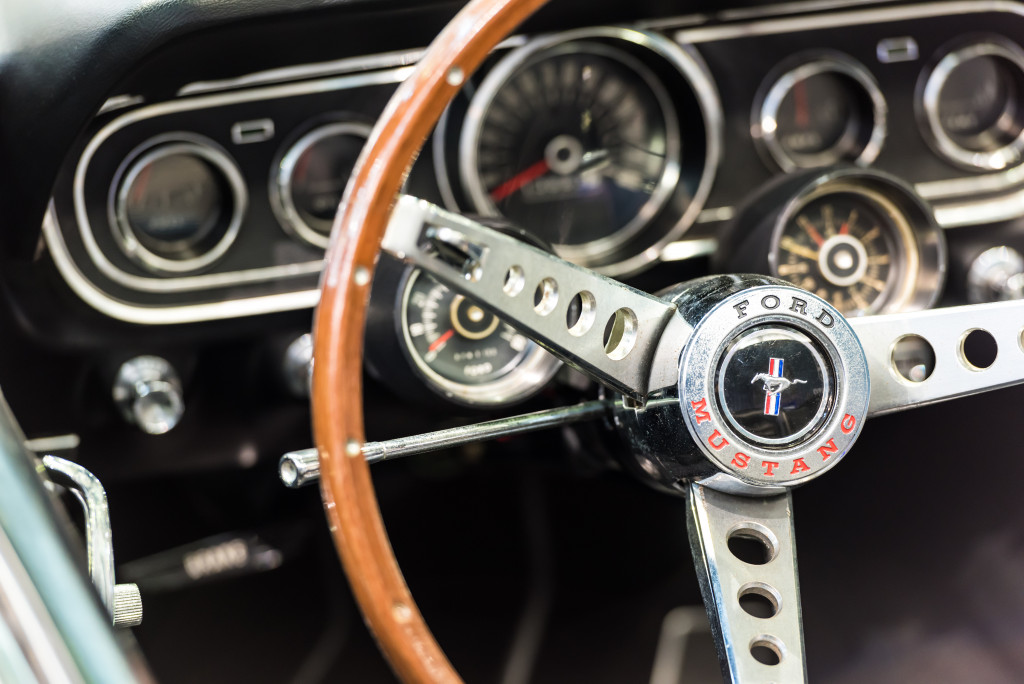Starting a classic car restoration business can be an exciting and rewarding venture. Not only will you work with beautiful, iconic cars that have stood the test of time, but you’ll also get to help restore them to their former glory.
However, some essential things to consider before taking on this challenge. This article will explore all of these aspects so you can make an informed decision about whether or not starting up a classic car restoration business is right for you.
Start-up Capital

Starting a classic car restoration business requires significant start-up capital. It involves purchasing equipment, building inventory, and securing a place of business. Planning for start-up capital is the first step, and the amount needed varies depending on the scale of operations.
Creating a detailed budget is essential to know precisely how much capital is needed and where you will spend that money. Start-up capital can come from various sources: personal savings, small loans from banks or other financial institutions, grants, and investments from those interested in the venture.
Having enough capital to sustain the business until it turns a profit is key to its success, as it allows entrepreneurs to take advantage of opportunities when they arise and plan for long-term growth.
Business Plan
A business plan is crucial when opening a classic car restoration business. It should provide an overview of the industry, including its organizational structure and goals, as well as a strategy for achieving them.
Additionally, it should include a financial plan that details expected costs and projected income. A successful business plan will need to consider the target market, marketing methods to reach that market, the competition in the area, and any potential obstacles that could arise.
Having a clear and thorough business plan is essential for the success of a classic car restoration business: it allows entrepreneurs to find potential investors who are willing to finance their endeavor, as well as helps owners manage resources responsibly so they can maximize profits.
Automotive Tools & Equipment
Starting a classic car restoration business requires the right automotive tools and equipment. It is essential to plan carefully to maximize success and ensure you can complete all jobs to high standards.
Only by investing in quality tools and equipment sourced from leading manufacturers can a shop owner receive the necessary reliability. This should include hand tools, power tools, paint and body supplies, fabrication machinery, and specialty items.
Additionally, installing the correct lift systems ensures cars can quickly be brought in and out of the shop without risking employee injuries or any damage to the vehicle itself. It also provides that you can adequately repair intricate classic car suspensions that require more complex work.
Significant investments should also be made in health & safety products such as eyewear, protective clothing, and first-aid kits—especially important when using specialized chemicals. In conclusion, having substantial resources at their disposal will enable owners of classic car restoration businesses to provide outstanding customer service that will keep customers returning time and again.
Location & Facilities
Finding a place with adequate working space, close to suppliers, and easily accessible to customers can help the business flourish. Selecting a suitable spot with enough room for all the necessary equipment, such as paint booths, lifts, welding machines, and body presses, is vital.
According to experts in the industry, it’s essential to plan thoroughly to create an efficient workflow within your workshop to maximize profits. Alternatively, specialized workshops may need extra features such as air conditioning, soundproofing, and dust extraction systems. Ultimately, having the right location and facilities will ensure the success of any classic car restoration business.
Insurance Coverage
Having the right insurance when opening a classic car restoration business cannot be understated. Business owners must plan to secure coverage for all possible risks associated with their operations.
These may include property damage, liability risk, workers’ compensation, and even auto accident insurance. Comprehensive policies can protect the repair shop’s facility, inventory, and equipment used to conduct repairs.
Depending on the scope of the business, owners may need to consider additional coverage for accidents caused by faulty or counterfeit parts or events outside their control, such as fire or flood damage.
Having the right kind of insurance in place is crucial to prevent unexpected losses and ensure the long-term sustainability and success of a classic car restoration business.
Certifications & Licensing
When setting up a classic car restoration business, certifications and licensing are essential for success. Certification is an official recognition that an individual or company has achieved specific standards of knowledge and proficiency in their specialist industry.
This can be a powerful marketing tool, indicating to potential customers the high level of service they can expect from your business when restoring classic cars. Licensing is a different form of formal authorization allowing you to operate legally within your state’s regulations.
Before launching your business, plan and research what licensing requirements are necessary. Make sure you meet all legal requirements to ensure that none of your activities violate any laws or ordinances.
Certifications and licensing will not only help ensure that your business is safe and legitimate but ultimately demonstrate the credibility of the work you produce and establish positive trustworthiness with clients, investors, partners, and suppliers.
These are just a few things to consider when opening a classic car restoration business. Ultimately, it is essential to remember that success in this field requires careful planning and research before diving right in.

